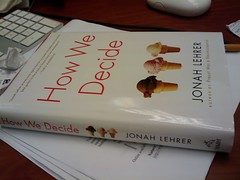
May 31 - Synthesis of Last 3 Blogs and How it Concerns IT Education
I was fortunate to fly over the Bhramaputra River Delta a few months ago. I marveled at how the various streams and rivers flowed into and between one another in an intricate and fascinating web, and then eventually emptied into the vastness of the ocean (at the top of the image). This blog is like that - neural pathways and streams of consciousness, flowing and merging and eventually being dumped into the public obscurity of the world wide web.
In posting the last three blogs in three days, I think I've completed the requirements for my tech class, but my brain says I need to synthesize and connect this information in a meaningful way and relate it to my role as a teacher.
These are the questions I'm still trying to find the answers to.
1) How do we shelter children from the flood of information available to them, much of which is frightening or otherwise inappropriate for their delicate years?
An interesting wiki entitled The Reality of Internet Filtering/Blocking, cited numerous sources which discussed how best to shelter children from inappropriate material on the internet. The major challenge was how to continually filter out inappropriate material without also blocking sites that are fine for children to visit.
As a society we realize that young children do not have the maturity to deal with adult issues, so we protect them while they are very young, and support them as they grow and begin to explore more mature material. This is why there are 'Adult' sections in public libraries and 'Adult Only' shelves in movie rental stores. This is why good parents monitor what their children watch on TV, especially during times of crisis. This is not censorship, or a violation of the First Amendment, this is common sense, and it applies to the internet as well.
Just as all school librarians carefully select the books they order for their collections, school tech departments need to set up safety nets to block inappropriate sites. Children must be taught that if they come across something that makes them feel uncomfortable, unsafe or afraid, they should leave the site immediately and tell a trusted adult. Children must also be supervised by a responsible adult while using the internet.
2) How do we teach our students to glean the most reliable information from the glut of smut that flows through the net?
The website for The Sheridan Libraries of Johns Hopkins University offered an excellent tutorial in how to find reliable information on the internet. This would be a good starting point for teachers who are helping their students gain the skill of discernment when it comes to using the internet.
The key things to consider are as follows:
Authorship
Publishing body
Point of view or bias
Referral to other sources
Verifiability
Currency
3) How do we teach our students to make the best personal choices based on the information they determine is reliable and relevant to their lives?
A goal of most quality schools is help students develop proficient skills in critical-thinking, problem-solving and decision-making. Good teachers provide a supportive environment where students can reflect on and explore issues of citizenship within a variety of communities. Parents and families provide a framework of morality which can further guide children as they determine their place in the world. With these three support systems, children have a sturdy stool to stand on as they reach for their goals and discover how they can contribute to making the world a better place.
I'm quite convinced that my musings here will enjoy a measure of obscurity, since I doubt few, if any others will find this blog worthy of their time. However, writing this blog was a helpful exercise for me as I recorded the ideas that have been chasing around in my brain the last few weeks. My husband pointed out that instead of jotting down my notes in a journal, I've now posted them on this blog and some climate-controlled server farm will have to store it for all eternity, wasting vast amounts of energy. (So much for being environmentally friendly.) My last question is this: Is this blog worth it?






